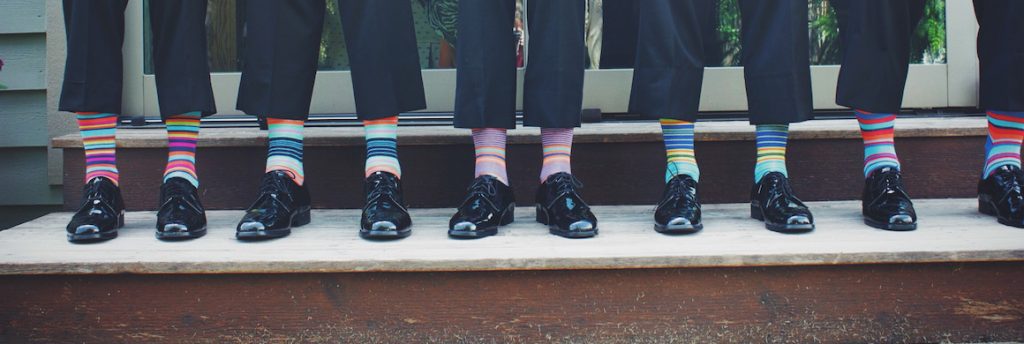There’s no doubt that interacting with classmates is one of the best parts about attending an MBA program. That’s because when you surround yourself with excellence, you can’t help but excel yourself. And that’s definitely true at the USC Marshall MBA program. Not only are all Marshall MBA candidates top-tier, but they also arrive with a diversity of ideas and opinions that truly enrich the entire experience. In fact, according to the most recent class profile, 32 percent of the MBA class is composed of women, 32 percent are from outside of the U.S. and 13 percent are underrepresented minorities.
But, diversity and inclusion don’t happen by chance. At Marshall, cultivating a diverse pool of high-quality MBAs is done with purpose, and it starts from the top down. Michael Quick, the Provost and Senior Vice President for Academic Affairs at USC, is committed to diversity and inclusion. He has made it clear that the entire university, all 19 schools, should be intentional about welcoming all students, which is one of the reasons he created the Diversity Provost Task Force.
To get a better idea of what USC and, in particular, Marshall are doing to promote diversity and inclusion, we spoke with Debra Langford, the Assistant Dean of Diversity and Inclusion at Marshall. Originally, Langford was named the Officer of Diversity and Inclusion but was quickly promoted when Dean James G. Ellis decided to be more intentional.
“Diversity and inclusion are part of Marshall’s culture, and Dean Ellis wanted a senior person who could execute his vision and be a listening agent for all faculty, students, and staff,” Langford says. “He also wanted a tremendous amount of feedback, especially from students, about how Marshall can get better.” And that’s what Langford does in her role. She sees how the school can improve in tolerance and diversity and implements changes. For example, her office is currently doing an audit of every Marshall course to discover how diversity has been applied within the classroom.
However, diversity and inclusion don’t just happen inside the classroom at Marshall, they happen, most often in organic ways, outside of coursework. For example, the Marshall MBA program is home to over 40 clubs, and each of those clubs falls under one of three types: interest, affinity or industry. Interest clubs include the Business and Entertainment Association while affinity clubs refer to clubs such as the Gay and Lesbian Association. Finally, industry clubs are focused on business interests and include clubs like the Consulting Club. In each case, the clubs are rich with ideas and collaboration and they do not operate in a vacuum.
“For example, there was a fantastic event two to three months ago that was called ‘Fusion’, during which several clubs got together off campus for a BBQ,” explains Langford. “The purpose of Fusion was to demonstrate how everyone had more in common than not, but to also celebrate those differences. For example, Texas BBQ is different than Korean BBQ, which is different than New Orleans BBQ, and so on and so forth, but it’s all still BBQ.”
And Fusion isn’t close to being the only event to celebrate differences and similarities at Marshall. Recently, there was another event called Shakes and Stories. “Shakes” stood for the location of the event—in a milkshake shop—and “Stories” stood for the purpose. Over 40 students attended to share stories that were inclusive and relatable. Subjects included a variety of topics from being gay, to being a woman, to having a disability. The goal was to bring MBAs together and to get them talking, and it worked perfectly.
Marshall also just hosted a workshop, discussion and training event at the L.A. Museum of Tolerance all about diversity and inclusion. The purpose of the workshop, which was funded by the Lord Foundation, was to bring a broad range of USC Marshall faculty members together for a day to spark conversations that would enrich students’ experiences on and off campus. The workshop included a tour of the museum, facilitated discussions, and a live performance play.
“In the heat of the Republican presidential primary last spring, we saw all these issues rising to the surface about how to foster diversity and inclusion in our country,” Terance Wolfe, Associate Professor of Clinical Management and Organization and author of the Museum of Tolerance grant, said in a press release. “Most business schools are silent on these issues, and I felt like we had a real opportunity to do some professional development so that our faculty would be equipped to tackle them head on.”
As for Langford, she just attended Marshall’s Diversity Weekend, which took place over two days during admissions. The weekend brought together a variety of candidates interested in pursuing their MBA and introduced attendees to the clubs and alums that make USC and Marshall unique.
For example, Leo Olebe, a Marshall graduate and the current Director of Global Games Partnerships at Facebook, talked about why he chose Marshall and how it was a game changer for him. “It was the beginning of a grand adventure that has taken me to places that I never thought possible,” he said. In fact, Leo traces the root of his career back to Marshall. And for Langford, the fact that so many Marshall graduates are willing to give back is a clear indicator of its success.
To learn more about how the USC Marshall School of Business makes diversity and inclusion a priority, visit the school website.
